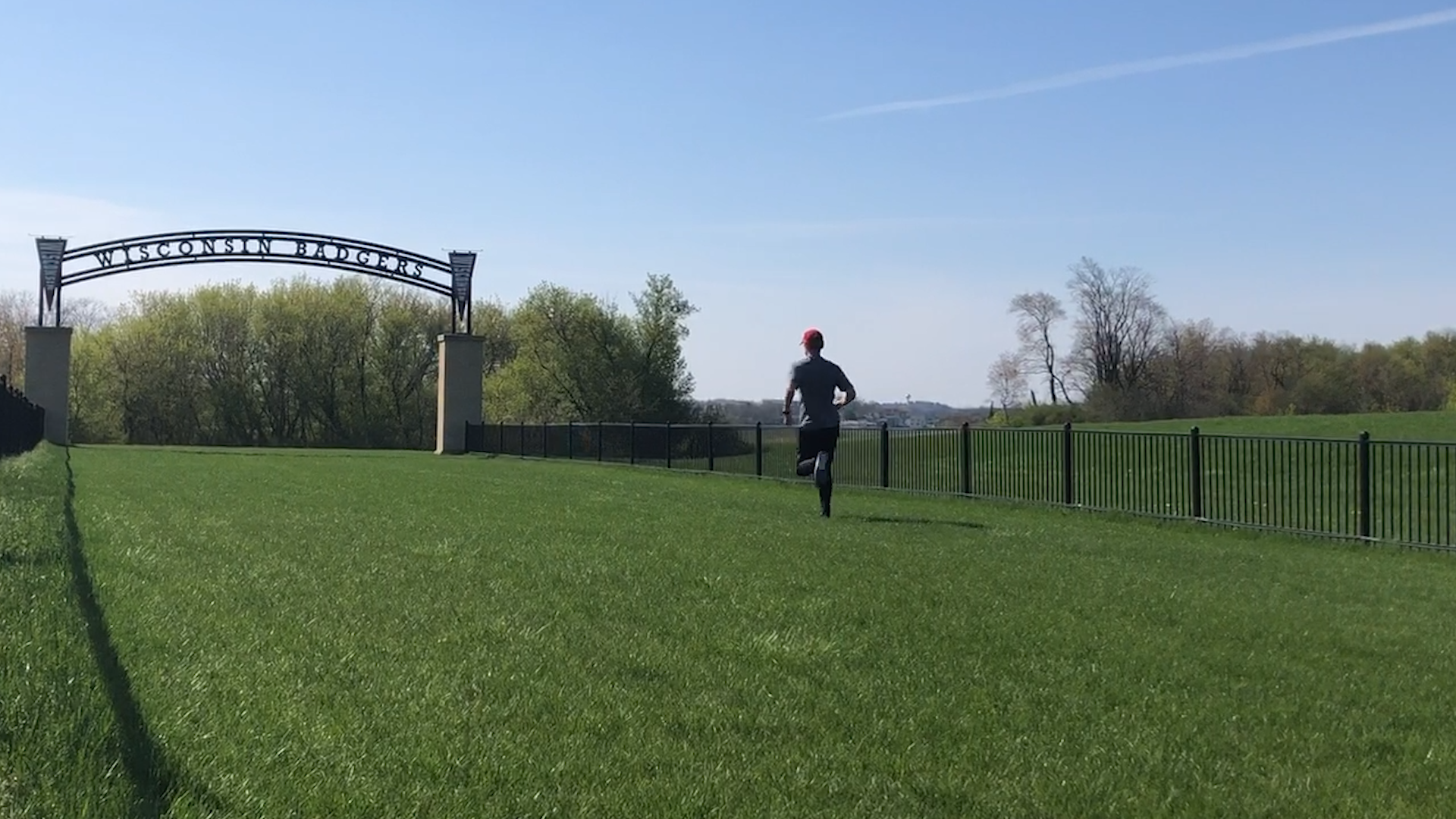VERONA, Wis. (SPECTRUM NEWS) -- A Wisconsin stroke survivor wants everyone to know the signs and symptoms this Stroke Awareness Month.
Eric Sarno was 36 years old and healthy, he was running in triathlons. Not even running in them, but he created the Quad Cities Triathlon. He was in the hospital recovering from back surgery when he had a stroke.
“I was paralyzed there for a while,” Sarno said. “10 days in the ICU, and just did some rehab in the hospital, then once I got out of the hospital, did about 7 months of rehab. It took about a year to get back to work and about two years before I started to dabble in racing again.”
When you look at Sarno, you’d never guess he’s a stroke survivor. He’s fully recovered, after re-learning how to walk, read, write, and drive. He even runs a couple times a week.

Now, his mission is to raise awareness about stroke and stroke risk. The number one rule: the sooner you get help, the better your chance of surviving, and surviving without long-term damage.
“It’s hard to survive some strokes. Let alone the recovery is usually the worst part,” Sarno said. “Disability is the lingering side effect of stroke for the most part, and that’s why it’s so important to get to the hospital.”
The signs of stroke often begin suddenly. They are:
- Numbness or weakness in the face, arm, or leg, especially if it’s all on one side of the body
- Sudden confusion
- Trouble speaking
- Difficulty seeing
- Loss of balance/coordination
As soon as you notice these symptoms in yourself or someone else, you should call 911 right away.
Lowering blood pressure, losing weight and increasing exercise can lower the risk of stroke. Diabetes, smoking and atrial fibrillation can increase your stroke risk.
Some ER staff across the country have seen lower numbers of people coming in with typical emergencies, like heart attacks and strokes. Sarno worries coronavirus will keep some people from seeking help until it’s too late.
“People are trying to stay away from the hospital and may wait a little longer. Not just for stroke but for a lot of things, and they really shouldn’t,” Sarno said. “Certainly if you’re having signs and symptoms of a stroke, waiting is not the way to go. Cause certainly your brain is counting on you, time is of the essence.”
Under normal circumstances, Sarno volunteers in the ICU with stroke patients and their families. “Now that we’re all staying home … that’s something I miss a great deal.”
After his stroke, he became an advocate for patients and families. He’s chair of the UW Health Patient and Family Advisory Committee, where people can have a say in UW Health’s protocol and practices. He’s encouraged state and national lawmakers to adopt legislation supporting stroke survivors.
“Having seen both sides of being in the hospital, being a patient, recovering, and then interacting with families and patients that are currently going through it, gives you a lot of passion,” Sarno said.
During his recovery, he started keeping a journal. Eventually that journal became Stroke Runner, a memoir.
Running is now a permanent part of his identity again. He still competes when he can. “Sometimes I look at my body and I’m like… this actually, this actually works!”
Click here for more information from the CDC about stroke symptoms and risk.
For more on Stroke Runner, click here.



